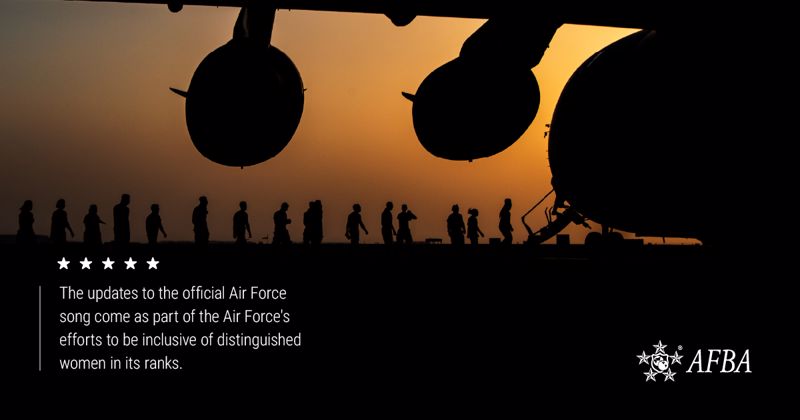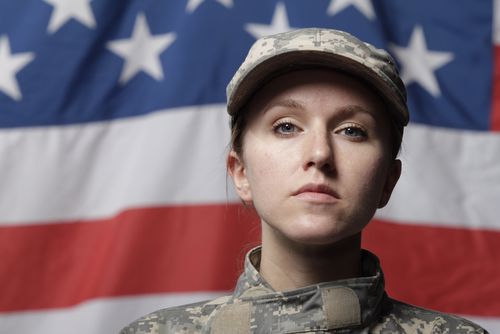Lyrics to the official Air Force song that formerly recognized the contributions of male airmen only have been rewritten to be gender-neutral. This change comes as part of the Air Force's efforts to be inclusive and to acknowledge the distinguished women airmen in its ranks.

Updates made eighty-one years after the song's initial composition
The song is officially titled "The U.S. Air Force" but is more commonly known by its first line, "Off we go, into the wild blue yonder."
It was originally written to help establish a sense of camaraderie and identity for the U.S. Army Air Corps in the late 1930s. Since the Corps did not have the budget to commission such as song, the publisher of a magazine called "Liberty" established a songwriting contest in 1938 with a $1,000 prize. The winning submission came in a couple of days before the final deadline from a musician and civilian pilot, Robert M. Crawford. Too young to enlist during World War I, he later flew for the U.S. Army Air Forces' Air Transport Command during the Second World War.
This is not the first time the song has been modified in its 81-year lifetime to better reflect the force and its servicemembers. Before the Air Force was its own independent branch, the song was titled "The Army Air Corps." It was changed to "Army Air Forces" during World War II, and the title and lyrics were rewritten once again in 1947 upon the establishment of the U.S. Air Force.
"Off we go, into the wild blue yonder" is also the U.S. Air Force Academy's official school song and is frequently sung at sporting events and during graduation ceremonies. According to Air Force Times, the U.S. Military Academy at West Point and the U.S. Naval Academy already modified their lyrics over a decade ago to better reflect the presence and contributions of women cadets.
Half a dozen gendered reference rewritten
After a series of updates that began in February 2020, half a dozen changes have now been made across the song's four verses. In the popular opening verse, "At 'em boys" is now "At 'em now, give 'em the gun." In the second verse, the phrases "Minds of men," "Hands of men" and "Souls of men" have been updated to create three updated lyrics:
- "Brilliant minds fashioned a crate of thunder."
- "Valiant hands blasted the world asunder."
- "Boundless souls dreaming of skies to conquer."
In the third verse, the lyric formerly ending in "of his brother men who fly" now goes, "To a friend we send a message of the brave who serve on high." Additionally, "men" has been changed to "those" in the verse's triumphant conclusion, "A toast to the host of those we boast, the U.S. Air Force!" And, in the final verse, "Flying men" has been removed in favor of "Fly to fight, guarding the nation's border."
Gender-neutral lyrics acknowledge that one in five airmen are women
According to Air Force demographic data, women could first begin pilot and navigator training in 1976 and 1977, respectively, and were not able to complete fighter pilot training until 1993. Nowadays, approximately one in five Air Force active-duty servicemembers are women — 68,470 women airmen total, as of January 2020. Among them, 806 serve as pilots; 347 are navigators, and 233 are air battle managers for Air Force.
Although the name given to servicemembers — airmen — remains awkwardly gendered, the Air Force considers this a step in the right direction.
"These new lyrics speak more accurately to all we do, all that we are and all that we strive to be as a profession of arms," Air Force Chief of Staff Gen. David L. Goldfein said in a news release. "They add proper respect and recognition to everyone who serves and who has served."


